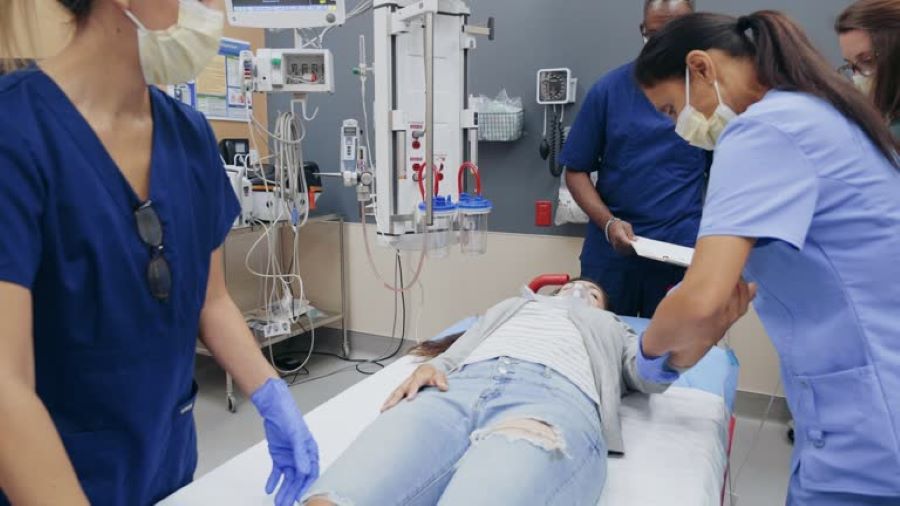When people imagine a trip to the Gili Islands, the image is usually one of idyllic beaches, colorful coral reefs, and sunset cocktails by the sea. But what most travelers don’t consider—until they need it—is how prepared the islands are to handle a Gili emergency.
Whether you’re a backpacker diving off the coast of Gili Trawangan, a honeymooner biking around Gili Air, or a digital nomad enjoying peace on Gili Meno, emergencies can happen. And when they do, time, information, and access to the right help can make all the difference.
This article dives into everything you need to know about Gili emergency preparedness—what services exist, what to do in different scenarios, and how you can stay safe while enjoying one of Indonesia’s most beautiful destinations.
Why Gili Islands Are Both Magical—and Challenging in an Emergency
The Gili Islands are unique. They’re small, car-free, and relatively remote. That’s part of their charm. But it also presents challenges when it comes to emergencies:
- No hospitals on the islands
- Limited transport options to the mainland
- Sudden weather changes that can delay boat evacuations
- Language barriers for some international travelers
- Limited access to certain medical supplies
But that doesn’t mean you’re on your own. The local community and healthcare providers are prepared for a wide range of Gili emergency scenarios, and with the right knowledge, you can enjoy your stay safely.
The Most Common Types of Gili Emergency Situations
Understanding what kinds of emergencies typically occur on the Gilis can help you prepare accordingly. Here are the top issues visitors encounter:
1. Diving-Related Injuries
The Gilis are famous for scuba diving, but diving comes with risks like:
- Decompression sickness (DCS)
- Barotrauma
- Coral cuts and jellyfish stings
Dive centers are trained in first response and work closely with island clinics to handle dive-related Gili emergencies quickly.
2. Motorbike or Bicycle Accidents
While motorbikes are not used on the islands, many visitors rent bicycles or ride horse carts (cidomo). Accidents, particularly in Gili Trawangan’s busier areas, can lead to cuts, bruises, or fractures.
3. Food Poisoning or Allergic Reactions
Changes in diet or water quality can cause stomach issues, especially for first-time travelers in Southeast Asia. Some cases may lead to dehydration or require medication.
4. Sunburn, Heat Exhaustion, or Dehydration
The tropical sun is stronger than many realize. Without proper hydration or protection, travelers may suffer from heatstroke or severe sunburn.
5. Tropical Illnesses
While relatively rare, mosquito-borne illnesses like dengue or bacterial infections can occur in any tropical region, including the Gilis.
Where to Go in a Gili Emergency
While there are no full-scale hospitals on the islands, there are well-equipped medical clinics that can handle a wide range of emergencies. For instance:
- Gili Trawangan: Home to the largest selection of medical clinics, some open 24/7 and capable of stabilizing patients.
- Gili Air and Gili Meno: Smaller clinics and first-aid responders are available, with options for boat transfers if needed.
These clinics provide:
- General consultations
- Wound treatment and stitches
- Intravenous fluids
- First aid for diving incidents
- Medications and prescriptions
In serious cases, patients are stabilized and referred to hospitals in Lombok or even Bali, depending on urgency.
How Evacuations Work in a Gili Emergency
For serious medical emergencies that cannot be treated on the island, evacuation becomes the next critical step. Here’s how the process usually works:
- Stabilization at Local Clinic
Medical staff provide immediate care, such as stopping bleeding, providing oxygen, or treating dehydration. - Boat Transfer to Lombok
Most often via private speedboat or emergency transfer boat. Clinics usually coordinate this directly. - Ambulance to Lombok Hospital
Once on the mainland, an ambulance meets the patient and brings them to one of the nearest hospitals. - Flight Evacuation to Bali (if needed)
For extreme cases, especially involving surgery or critical care, patients may be airlifted or ferried to Bali for advanced treatment.
Travel Insurance: Don’t Visit Without It
One of the most important pieces of advice when visiting the Gilis is this: Never travel without insurance.
A simple fall from a bike could cost hundreds of dollars in treatment and evacuation fees. Diving accidents may require expensive transport and treatment in Bali, and most providers will require proof of insurance before moving forward.
Make sure your insurance:
- Covers diving and water sports
- Covers medical evacuation
- Has a 24/7 emergency hotline
- Can reimburse or prepay clinics/hospitals directly
Before your trip, keep a digital and printed copy of your insurance policy and contact details. This will make any Gili emergency process smoother and faster.
How to Prepare Before You Need Help
You don’t want to be Googling “what to do in a Gili emergency” while panicking. Here’s a quick preparation checklist:
- Save emergency numbers (clinic, hotel, travel insurance)
- Know the location of the nearest clinic to your accommodation
- Ask your hotel staff what to do in case of emergency
- Pack a small first-aid kit with essentials
- Stay hydrated and use sunscreen
- Watch out for unsafe food or water sources
- Avoid night biking without proper lights
Community Support: Island Locals Who Step Up
One of the most heartwarming things about a Gili emergency situation is how the local community often responds. Locals are generally quick to assist travelers in need—calling clinics, helping translate, or offering transport.
Many dive shops and accommodations even have their own emergency protocols and partnerships with nearby clinics. So don’t be afraid to ask for help if you’re unsure—locals are used to assisting and will guide you to the right place.
Stay Safe, Stay Aware, and Enjoy the Gili Islands
The Gili Islands are a dream destination—but like anywhere, emergencies can happen. The key is to stay aware, be prepared, and understand what to do if something goes wrong.
Thanks to a growing infrastructure of reliable clinics, trained staff, and support systems, the Gili emergency network is stronger than ever. Whether you experience a small health hiccup or need urgent care, knowing that help is available gives you the peace of mind to truly enjoy your island escape.
So go ahead—dive, explore, cycle, and relax. Just remember: being informed today can protect you tomorrow.

